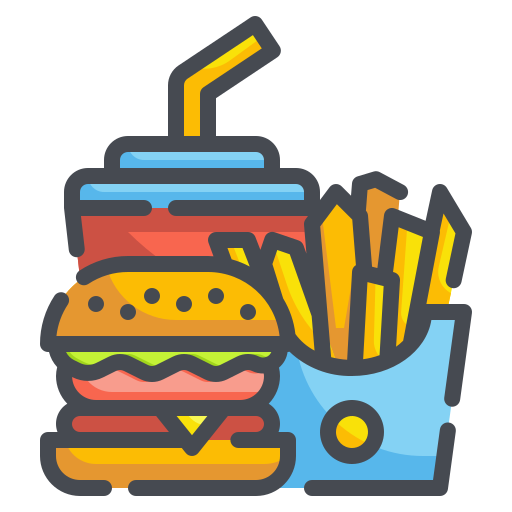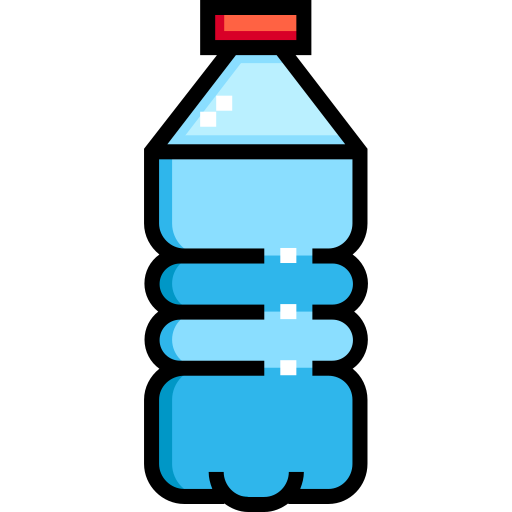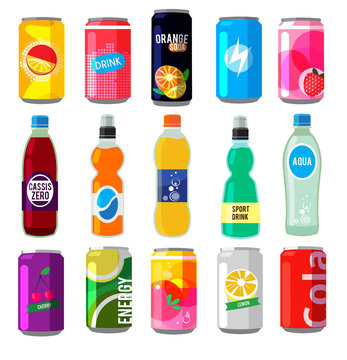1. Common Mistakes
COMMON MISTAKES
Fast Food
It is common for players who do not have time or do not realize the importance of nutrition to eat whatever and whenever they can. As a consequence, ready-made or easy-to-make meals, which generally do not contain the necessary nutrients for a soccer player’s diet, are eaten.
To solve this, players can prepare food in advance, when they have time, and take it with them in tupperware. This will save money and allow for better nutrition.

Poor Hydration
Another common mistake is the failure of footballers to hydrate before, during, and after they play. Dehydration is one of the main causes of poor sports performance and highly increases the risk of injury. In the next chapter, we will delve into this topic and provide guidelines that will increase your athletic performance.

Schedules
In the same way that choosing what to eat is important, knowing when to eat is equally vital. It is necessary to pay attention to our personal schedule for eating and manage it to create a routine. Forgetting, skipping, or delaying meals, alters our nutritional balance and metabolism. Actions such as eating just before a training session, going to bed with a full stomach, or not eating anything after training, are detrimental to our body and sports performance. To ensure you are at your best, we will provide some guidelines regarding when to eat during the day based on your activities and schedule.

Sugary drinks and juices
We must bear in mind that the high level of sugar in soft and carbonated drinks is harmful to our body, and therefore to our performance. In contrast to soft drinks, in most cases, we think of juices as healthy. However, sugary juices are certainly not since they are ultra-processed foods that contain harmfully high levels of sugar. You can instead drink natural juices, which are best before a match. Although, simply eating whole fruit is much more profitable for your body.

Fewer calories ≠ better performance
Another very common mistake is for young athletes to believe that consuming foods with fewer calories will allow lower fat, reduced weight, and increased performance. In reality, insufficient caloric intake reduces the level of carbohydrates (our body’s main source of energy). This, in turn, significantly reduces sports performance and increases the risk of injury. Therefore, do not focus so much on the calories you consume. Instead, pay attention to the composition of the food you eat, which will enhance your performance to a greater extent.

Consuming an excessive amount of protein
On many occasions, young footballers obsess about protein because traditional thought says that since protein builds muscle, it must lead to better performance. This way of thinking can lead to many problems because the human body is unable to store excess protein. If a person consumes large amounts of extra protein, any weight gain will most likely be in the form of fat. In addition, the body tries to eliminate the excess protein, a process that can cause the body to suffer in the long run.

Sports supplements without guidelines
Sports supplementation is one of the most used resources since it can cover nutritional needs in a very short period of time. Its main objective is the improvement of performance, enhancement of qualities such as strength or endurance, and shortening of the recovery times. However, the consumption of these supplements is useless if our main daily intakes, such as breakfast, lunch, and dinner, are not adequate. In addition, any sports supplementation plan that you want to include in your diet should be guided and controlled by a nutritionist.

➡️ Now that you have seen some of the common mistakes made by young footballers, we are going to start giving you guidelines to create your nutritional plan so that it improves your development and enhances your sports performance.
